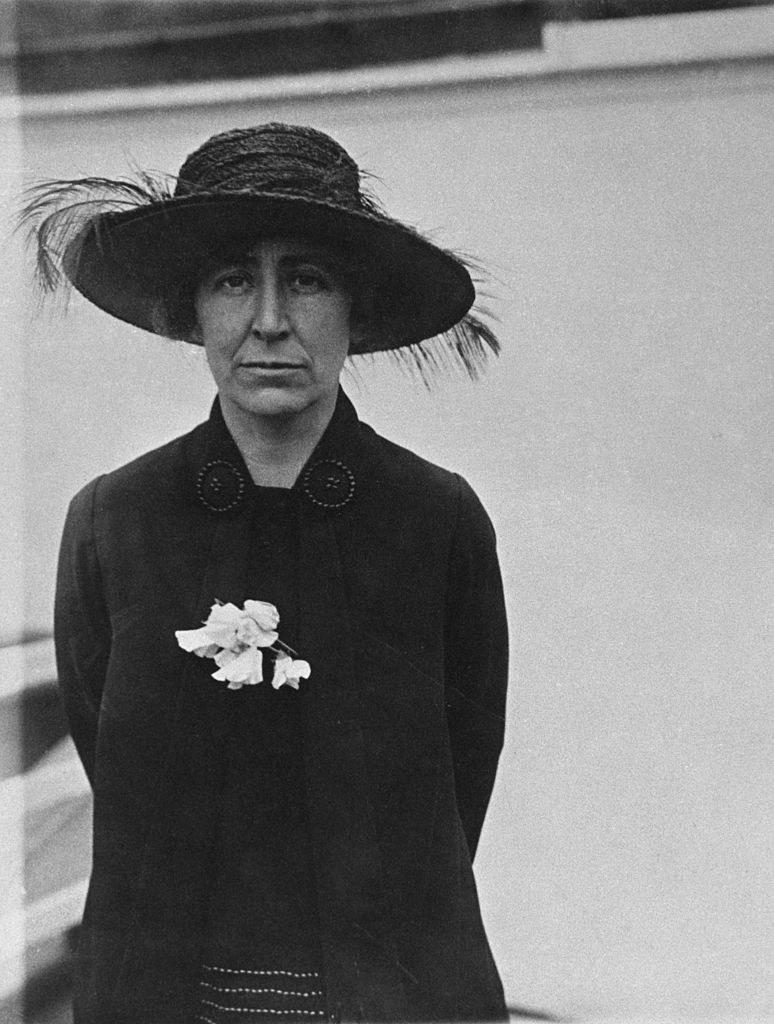21 Astounding Facts I Learned This Week That Will Live In My Brain Forever
- Oops!Something went wrong.Please try again later.
- Oops!Something went wrong.Please try again later.
- Oops!Something went wrong.Please try again later.
1.The first McDonald's drive-thru was built in 1975 in Sierra Vista, Arizona, located near Fort Huachuca. The soldiers working at the base were under strict orders to not appear in uniform in public, so they were unable to pick up a Big Mac on their way home from work unless they changed into civilian clothes. Manager David Rich decided to cut a hole in the side of the building that would allow soldiers to order meals without getting out of their vehicles, and thus, the drive-thru was born.
NBC / Via giphy.com
2.Between the end of Prohibition and the 1970s, Coors Banquet was only available in 11 states, all located west of the Mississippi River. The beer was unpasteurized and had to be kept cold during transit, otherwise, it would go bad. Despite this, several US Presidents loved the brew so much that they went to great lengths to bring it to the White House.
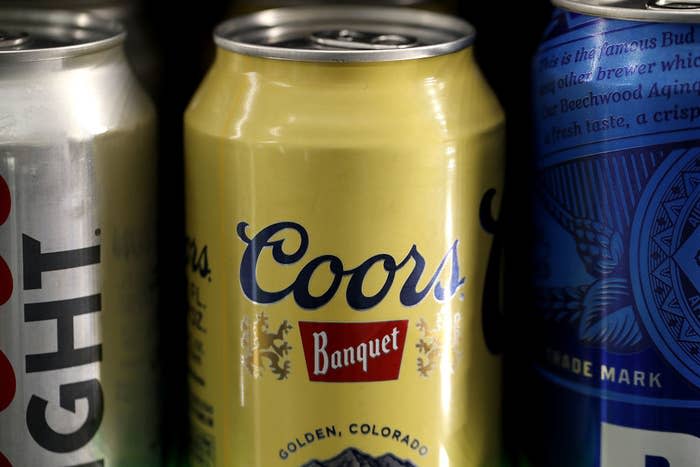
President Dwight D. Eisenhower occasionally had the Air Force fly a supply of Coors to Washington DC. Years later, President Gerald Ford smuggled a case of Coors back to the White House after a ski trip in Colorado. By 1991, Coors was distributed in all 50 states.

3.Remember this one for when you're having a bad day! Planning a vacation actually creates more happiness in your brain than going on the actual trip does. A 2010 study showed that people had their highest levels of happiness before going on their trip, proving that the anticipation, and not the trip itself, boosts happiness.

4.Goldfish can distinguish music by different composers. Scientists played music by Bach and Stravinsky for the fish, and found that they could identify the correct composer about 75% of the time.

5.In 1979, a 22-year-old Cameron Crowe pretended to be a student and went undercover at a high school to write a book about his experiences. Fast Times at Ridgemont High, which later became a movie, featured a character named Mark Ratner. Ratner, who was based on a student named Andy Rathbone, was portrayed as being a huge computer nerd, something Rathbone took offense to. In fact, he even sued Crowe for the way he was depicted. Rathbone later went on to write PCs For Dummies and many other books in the Dummies series, which has millions of copies in print.

6.Some believe that Benjamin Franklin fought hard to make the turkey America's national bird. While he never actually proposed giving the turkey the honor, Franklin wrote in a letter to his daughter that the bald eagle had "bad moral character," and believed that turkeys were "much more respectable."
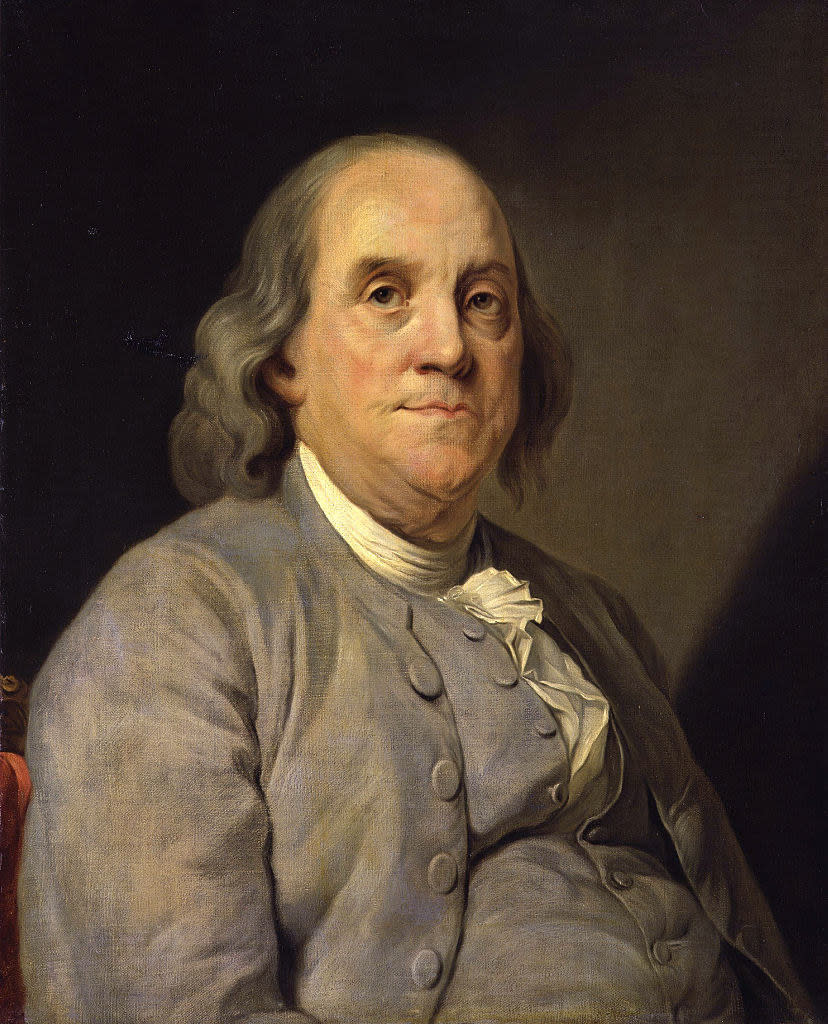
7.Rats, squirrels, and other rodents can't vomit. They're some of the few mammals who lack the ability to puke because their brains lack the neurological circuits associated with vomiting.
Paramount / Via giphy.com
8.There is only one known case of a person being struck by space debris. In 1997, Lottie Williams was walking in a Tulsa, Oklahoma park when she was struck in the shoulder by a 6-inch piece of metallic material. Williams was unharmed. It was later determined that the material came from a piece of a Delta II rocket that had been launched eight months earlier.

9.A ton of the props and artwork from the show Melrose Place had coded meanings about HIV awareness, environmental issues, women's rights, and same-sex marriage. In 1995, artist Mel Chin convinced the producers of the show to allow him and a group of artists, teachers, and students to replace the show's art with their messaged work. Several art shows with all of the artwork have been held since the show's finale.
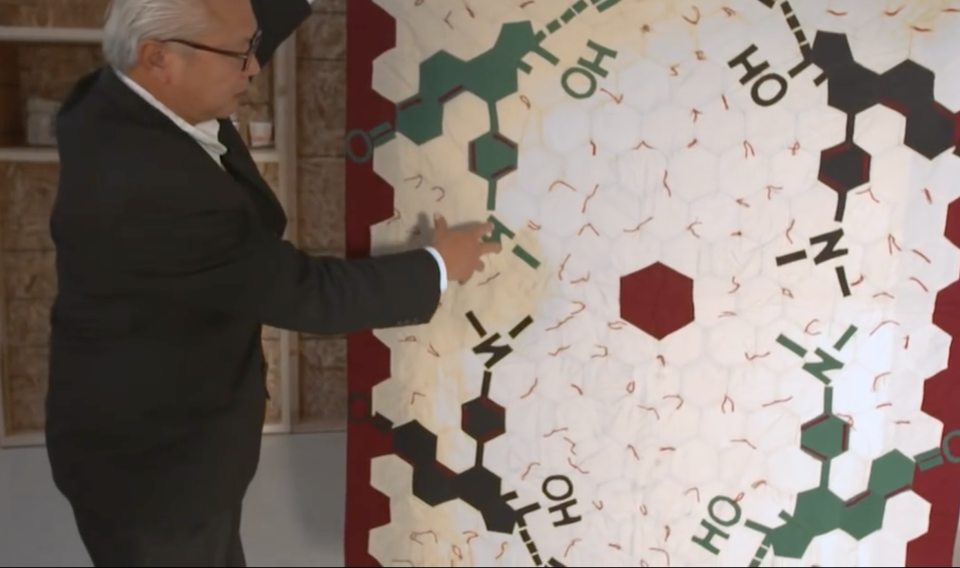
10.Some believe singer Jeff Buckley predicted his own drowning. The last line of the last song of his final (and only) studio album refers to being “asleep in the sand with the ocean washing over.”

In May 1997, Buckley drowned in the Mississippi River while in Memphis, Tennessee. There are lots of questions surrounding his death and why he entered the water at night by himself. Officials believe he was caught up in the wake of a passing boat.

11.During World War II, the government urged Americans to save the grease they accumulated while cooking. Why? The Army was accepting grease donations to produce explosives. One of the most commonly donated greases was from bacon.
Giphy / Via giphy.com
12.Sessue Hayakawa, a Japanese actor, was one of the most popular stars of the silent film era in Hollywood. Hayakawa acted in silent films in the 1910s and 1920s, where he typically portrayed villains or forbidden lovers. He was usually not allowed to "get the girl" at the end of the movie because he was a Japanese man acting alongside white women. The only time he actually ended up with the female lead was when he starred in The Dragon Painter alongside his wife, Tsuru Aoki.
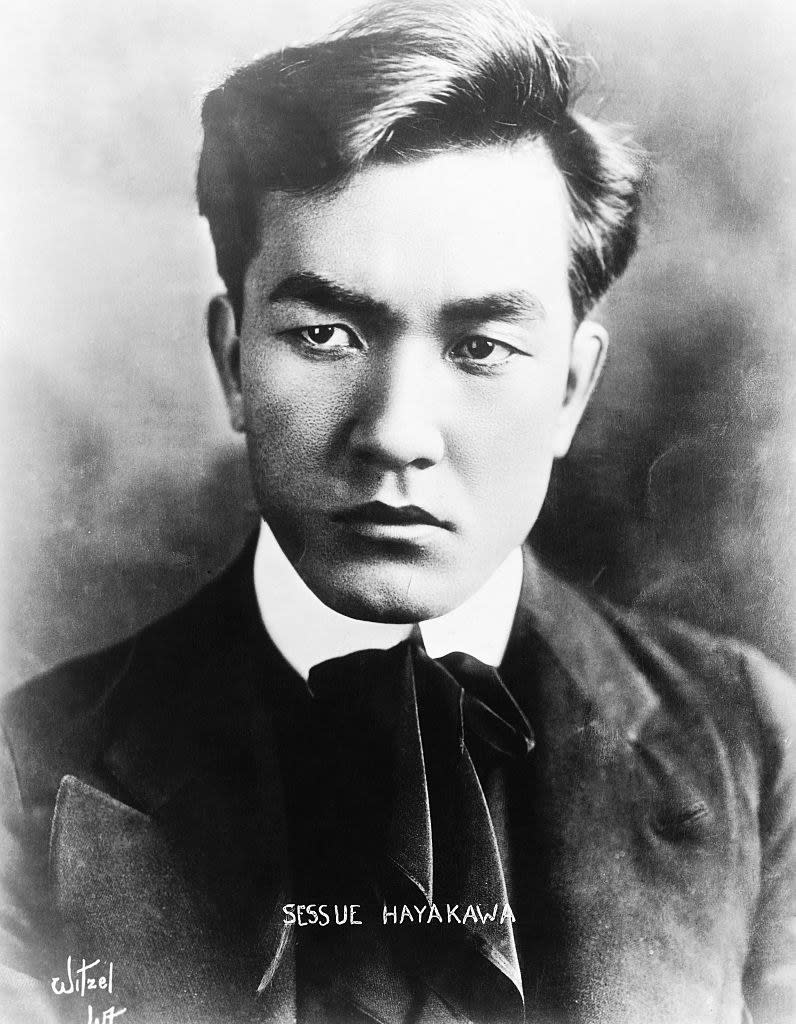
At the height of his fame, Hayakawa was earning up to $2 million, which equals about $28 million in today's money. In fact, some say his fame was on par with that of Charlie Chaplin, who is arguably the world's most recognizable silent film star. By 1918, Hayakawa was so popular that he started his own film studio. He successfully transitioned to "talkies" in the 1930s, and steadily worked until he largely retired from acting after starring in 1957's The Bridge on The River Kwai. Hayakawa became the first Asian person nominated for Best Actor at the Academy Awards for his role in that film.
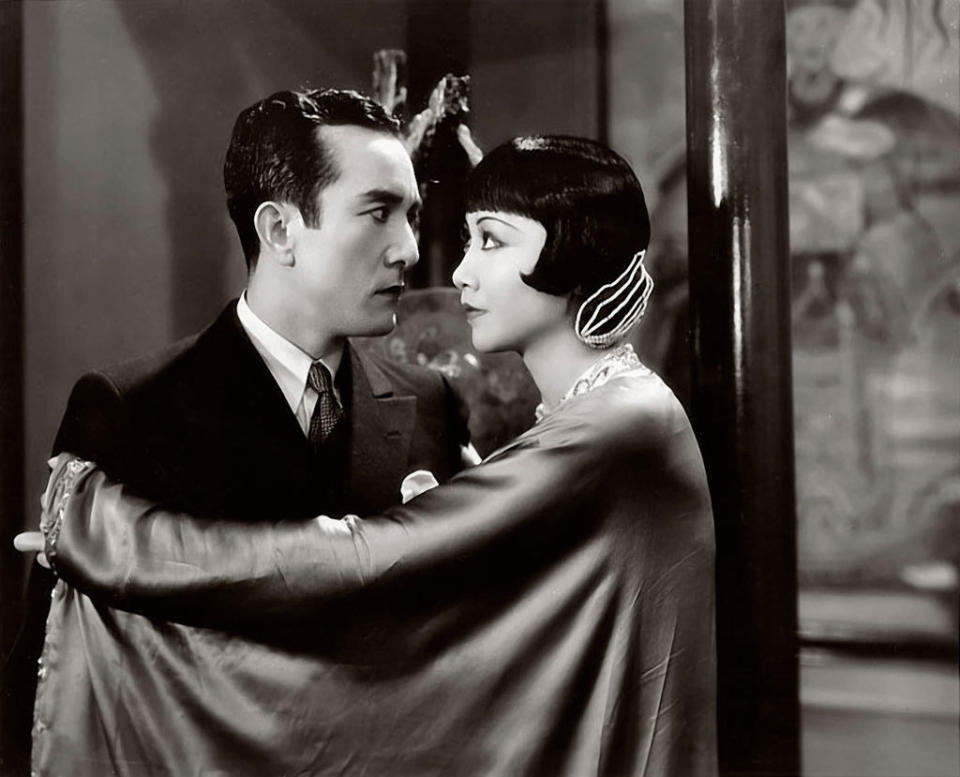
13.Hummingbirds are one of the few bird species who pee. Other birds excrete urine in solid form, but hummingbirds consume so much water through the nectar they drink that their urine is liquid.
Giphy / Via giphy.com
14.Cher's 1998 hit "Believe" is the first song to use Auto-Tune. The singer believed her career was hitting "rock bottom," and after hearing a different song with a wobble effect created by a vocoder (a voice effect pedal tool), decided she wanted to create a similar song. Her producers decided to use Auto-Tune, which had been released the year before, to create the effect. For years, they denied the use of Auto-Tune and claimed they had used the vocoder tool instead, but later came clean.
15.During the Great Depression, so many stories about Americans starving came out that word traveled all the way to Africa. In response, Cameroon sent $3.77 in relief money to the United States to show support, despite the fact that effects of the Depression were felt in the country.

16.When Lance Armstrong was found doping and stripped of multiple Tour de France wins, the committee decided to award the win to the next-place finisher. However, they found that so many bikers were doping that they ended up declaring no winner for seven successive Tour de France races.

17.Ever seen a movie with the "all persons are fictitious" disclaimer? That came to be after MGM released Rasputin and the Empress, a movie that said Prince Felix Yusupov shot and killed Rasputin. Yusupov heard about the movie and sued, saying it wasn't true.
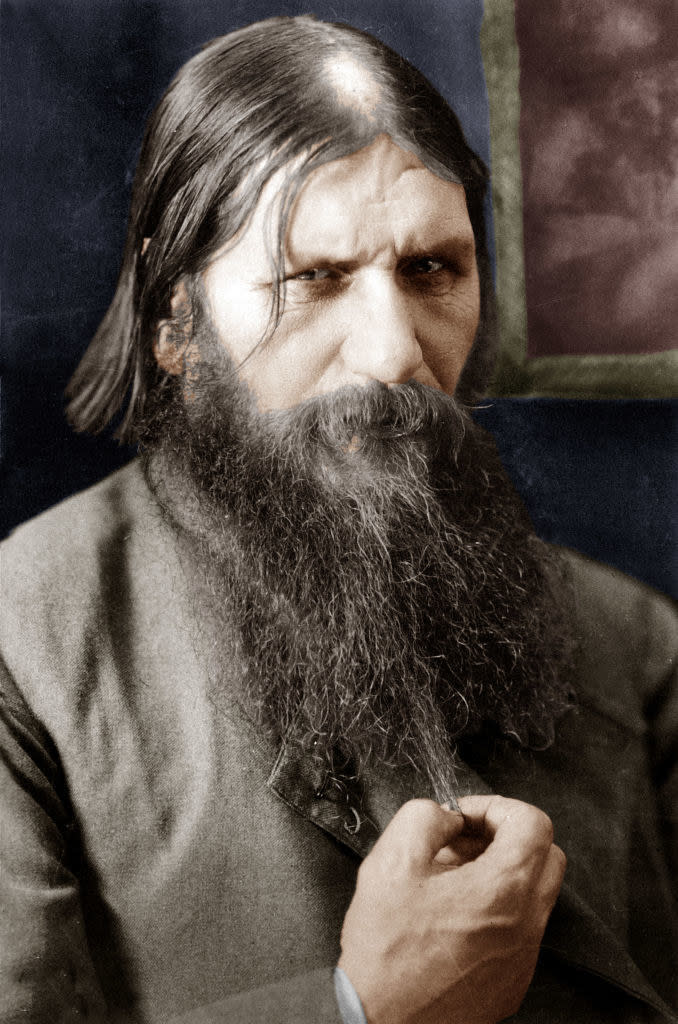
The issue? Yusupov had already released a memoir saying that he, in fact, had killed Rasputin, so his libel case had little ground to stand on. He pivoted his argument and said that the film defamed his wife due to a factual discrepancy. Turns out, an MGM employee had pointed this out, and had been fired and accused of tampering with the film. As a result, MGM lost the suit, and thus, the "all persons are fictitious" disclaimer was born.
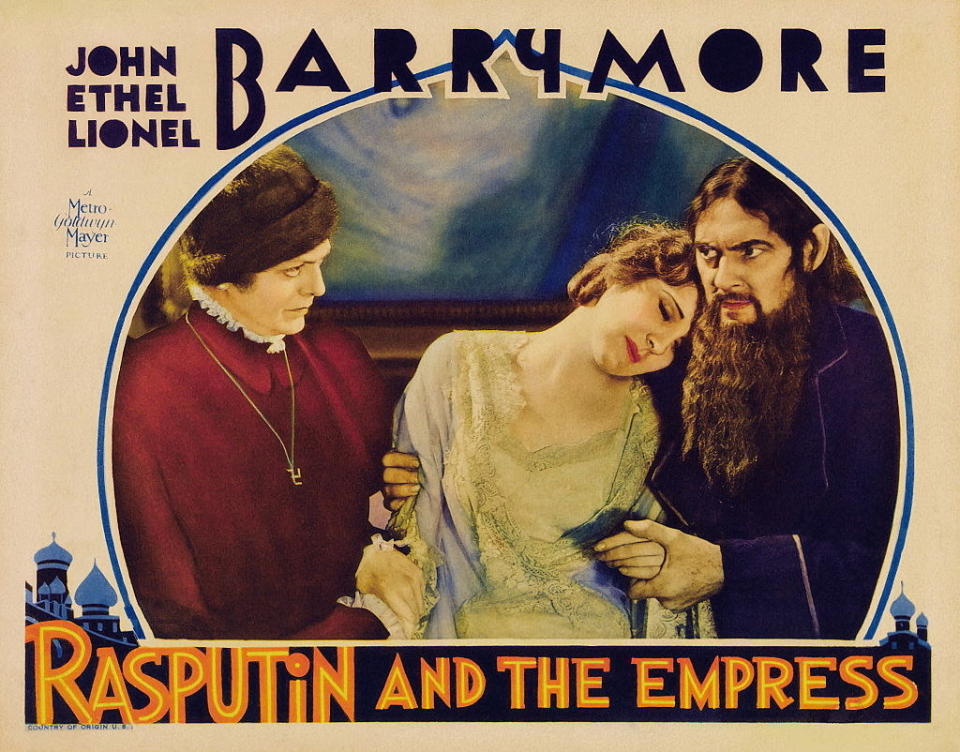
18.70 million years ago (aka, when dinosaurs were still around), days were only about 23-and-a-half hours long. The Earth turned faster then, meaning back in the day, there were technically 372 days in a year.
Pixar / Via giphy.com
19.Blink-182's iconic Enema of the State album cover originally showed a red cross on the nurse's hat. However, the band was forced to remove the cross from the cover after the American Red Cross told them it was a violation of the Geneva Convention because the band was in no way a medical entity.

20.Archaeologists have found an ancient takeout counter in the ruins of Pompeii. The counter, known as a termopolium, served hot drinks, stclreet food, and wine. The city was destroyed in 79 CE after Mount Vesuvius erupted.

21.And finally, Jeannette Rankin became the first female member of Congress in 1916, four years before the 19th Amendment, which granted women the right to vote, was ratified. Rankin began her political career as a student volunteer fighting for women's suffrage. When she learned Montana was considering legislation supporting women's suffrage, she headed over to volunteer. Upon arrival, she learned the legislation was a hoax but managed to convince them to actually follow through with the measure. She visited over 15 other states to fight for the right to vote.

In 1916, two years after Montana officially passed suffrage under her leadership, Rankin ran for one of Montana's two House seats. In that election cycle, more than 300 women around the world ran for office, as more states began granting women the right to vote. Rankin officially became the first woman to serve in Congress. She left office after her first term but was elected again during World War II.
